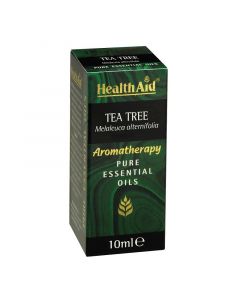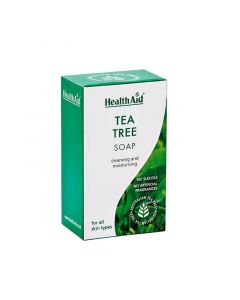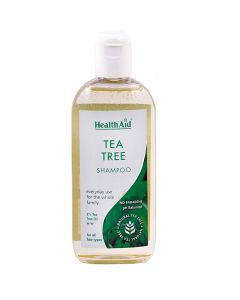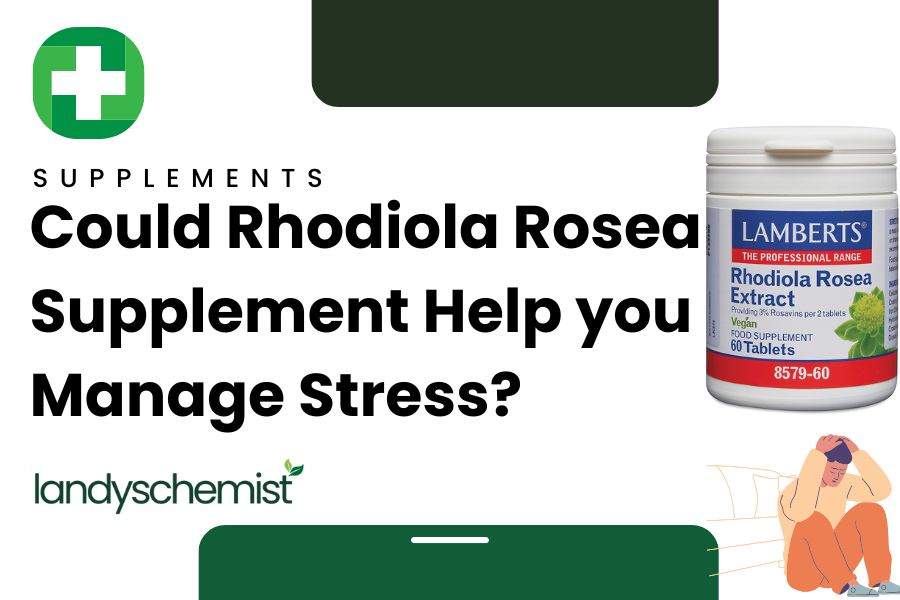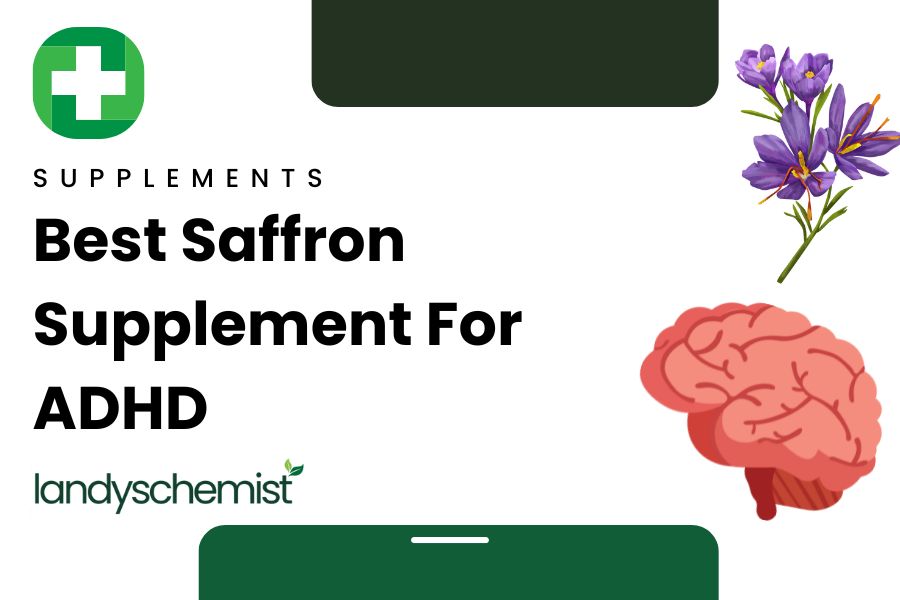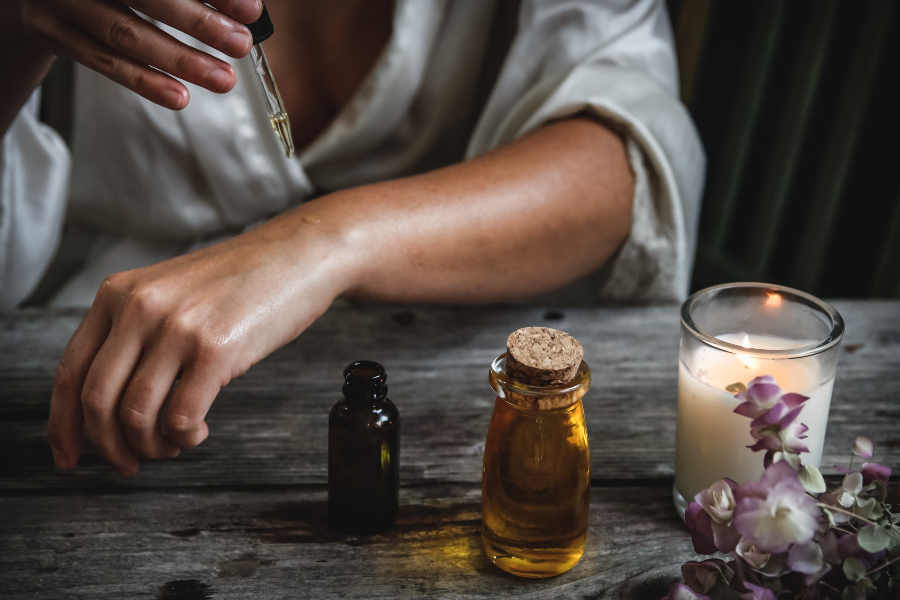
Tea Tree Oil: Uses & Benefits
Tea tree oil has been a popular medicinal aid since the 1970s. You've probably seen it on the boxes of a range of beauty and skincare products, and even some homeware items like room diffusers. Despite the prevalence of tea tree oil, not many people really understand its uses and benefits. Here, we put the spotlight on tea tree oil to offer a clearer understanding of how, and if, you should be using it.
Table of Contents
What is tea tree oil?
Tea tree oil is a popular beauty and skincare product, both on its own and as an ingredient within other products. It is commonly used in a variety of ways, including to treat skin and fungal conditions, to improve hair health and as an air diffuser to reduce anxiety.
Where does tea tree oil come from?
Tea tree oil comes from the leaves of a native Australian tea tree, primarily the Melaleuca Alternifolia, though varieties within the Melaleuca family are also used. It is made by steaming the leaves to extract the oils contained within.
What is tea tree oil good for?
There is limited evidence of tea tree oil's effectiveness despite its common use in skincare and aromatherapy. In part, this is because there have been limited studies into tea tree oil, such as clinical trials, which would offer more concrete findings.
However, tea tree oil is one of the traditional medicines used by native people, specifically it is believed to have been used by the Bundjalung people of eastern Australia to treat wounds, coughs and colds. Although we can't say for certain it has specific benefits, there are indicators of where it is likely to be useful.
Tea tree oil toxicity
It is important to note that although tea tree oil is often used in products that are applied topically, it should not be ingested. When undiluted and ingested orally, tea tree oil can cause nausea and vomiting. When diluted it is not toxic in small quantities, though you should be cautious of any ill feelings or skin reaction after you come into contact with tea tree oil – this is true of all new products you try.
Tea tree oil benefits
There are lots of ways people use tea tree oil in the hopes of achieving one of its many touted benefits. Tea tree oil may help with these issues but we cannot say for certain, and effectiveness may differ from person to person.
In all instances, tea tree oil is ONLY used diluted with other oils or products.
Tea tree oil for hair
Combating dandruff
Dandruff is a non-serious skin condition which is often more noticeable in darker hair. Tea tree oil is frequently used in shampoos and hair care products as it is believed to have antimicrobial and antiseptic properties which reduce dandruff. By cleaning your scalp and encouraging healthier skin, tea tree oil can help to reduce dandruff.
Encouraging hair growth
The idea behind using tea tree oil for hair growth is that by cleaning the hair effectively, it frees up the hair follicles to grow at a normal rate. Damaged hair, like over-washed hair, will be stripped of vital nutrients and so break more easily. Hair needs to stay healthy or it won't grow as quickly and tea tree oil could help with this by effectively cleansing your hair.
Tea tree oil for skin
Healing acne and spot-prone skin
Tea tree oil is commonly used in teen skincare products and products targeting spots and acne. The benefits of tea tree oil for acne and spot-prone skin is thought to be the antiinflammatory and antiseptic properties.
However, tea tree oil can have a drying effect on the skin. For those with dry skin or combination skin and acne, tea tree oil can make the skin worse by stripping the essential oils needed for skin healing. Additionally, tea tree oil can cause flare-ups in aggravated skin, such as spots, and will sometimes cause rashes.
Products containing tea tree oil should be used sparingly if you have acne. A small amount of one product containing it can be beneficial.
As an ingredient in hand sanitiser
You will most likely find tea tree oil in skincare products like face washes, cleansers and hand wash. The cleansing, antibacterial properties are considered good for refreshing the skin. In the past year, with an increase in the use of antibacterial gel, some people have made their own using tea tree oil.
Tea tree oil for anxiety and sleeplessness
Aromatherapy brands will often use a range of essential oils in their diffusers, including tea tree oil. Others include eucalyptus oil and lavender oil. The speculated benefits of using tea tree oil in this way are a reduction in anxiety, relief from sleeplessness and easing of congestion (clogged nasal passage). There is no real evidence for this but it is a prevalent belief.
How to use tea tree oil
Tea tree oil can be used in a number of ways, depending on the benefit you are aiming for. If you are using undiluted tea tree oil and adding it to other products, you should ensure you dilute it properly.
How to dilute tea tree oil
How much you dilute tea tree oil will depend on the use you want it for. As a general rule 1:10, where one part is tea tree oil and10 parts the other product, is a good starting point.
For products that don't contain tea tree oil, such as shampoos or conditioners, you can add pure tea tree oil with a dropper. Some products do contain tea tree oil already, so be careful not to add more as this could cause skin reactions and be more damaging than beneficial.
Best tea tree oil products
We recommend:
Pure tea tree oil for diluting
Products with tea tree oil
Myth busting: How not to use tea tree oil
Although most of the benefits of tea tree oil have yet to be proven, there are a couple of instances when you should not use tea tree oil, which we are certain of.
For fungal infections
Despite the frequent articles about how to use tea tree oil for fungal infections, particularly in nails, there is no evidence that this is effective. As such no reputable medical organisation will recommend it as a solution.
In places with pets
Tea tree oil is toxic, even when diluted, to pets like cats and dogs. If you live with animals, you should avoid using tea tree oil, particularly in diffuser form as breathing it in can cause them distress or damage.
Disclaimer
The products offered are not intended to diagnose, treat, cure, or prevent any illness or disease, or replace the advice of a medical professional. Results are not guaranteed and may vary from individual to individual.

